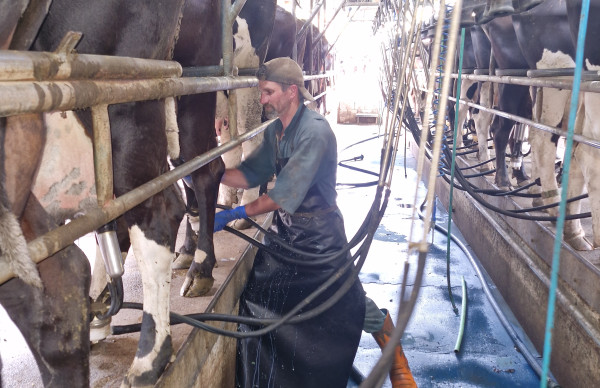New Zealand Diploma in Primary Industry Business Management
Level 5
Overview
Level of study
Level 5
Length
Completed as eight (8) separate 9-week courses, over 2-3 years of part-time study.
Prerequisites
Learners need to have access to a functioning primary industry business, including financial records, production data, and a property/physical environment to evaluate. Some staff management responsibilities are preferred but not essential.
*Learners may be eligible for Government Support including Fees Free. Learn more here
Summary
This programme gives learners an in-depth understanding of the core elements and functions required to run a successful Primary Industry business.
The total programme is 120 credits, split into eight (8) separate courses; each course is 15-credits and runs for nine (9) weeks. The full qualification can be completed in 2-3 years of part-time study.
Learners may work towards the full diploma or choose to complete selected courses in the terms which suit their requirements.
Learners will acquire the skills to develop a business plan and financial forecasts, understand environmental sustainability requirements, and develop a health, safety & wellbeing plan for a specific primary industry business.
Learners will also gain an understanding of capital requirements, tax implications, and effective ways to hire, manage and retain staff. Learners then tie all this knowledge together in the eight course with a final report, using what they've learned to analyse their business as-a-whole and drive it forward with confidence.
Download our brochure about the diploma here, or continue scrolling to view the course details.
Key learning outcomes of each course are as follows:
Primary Industry Business Planning (NSCI5901)
- Review key concepts of business management and planning processes for a primary industry organisation.
- Research and interpret information about the current state of a primary industry organisation.
- Develop a business plan for a primary industry organisation.
Fundamentals of Financial Management & Planning (NSCI5902)
- Compile and analyse financial management information for a primary industry organisation.
- Apply principles of taxation to a primary industry organisation.
- Evaluate opportunities to finance a primary industry organisation.
Financial Analysis for Primary Industries*(NSCI5903)
- Benchmark the physical and financial performance drivers of a primary industry organisation.
- Prepare financial analysis reports for a primary Industry organisation using suitable technology.
- Develop a proposal to obtain finance for a primary industry organisation.
- Develop a financial plan for a primary industry organisation.
* It is strongly recommended that learners firstly complete the Fundamentals of Financial Management & Planning course before enrolling in this course.
Human Resource Management in Primary Industries (NSCI5904)
- Identify the employment obligations and professional communication processes needed in a primary industry organisation.
- Outline the processes for managing the recruitment, selection, induction and termination of staff for a primary industry organisation using leadership and interpersonal skills
- Evaluate strategies for managing work allocation, training, well-being, working relationships, social and cultural aspects of working in teams.
- Develop strategies to implement and monitor staff performance and training within primary industry organisation.
Workplace Compliance in Primary Industries (NSCI5905)
- Identify workplace compliance and legislative requirements within an Aotearoa New Zealand primary industry organisation.
- Develop a compliant health, safety, and wellbeing plan for a primary industry organisation.
- Review strategies to assess, monitor and respond to employee wellbeing within a primary industry organisation.
Environmental Sustainability for Primary Industries (NSCI5906)
- Analyse the natural and physical resources relevant to the management of a primary industry organisation.
- Explain the roles and requirements of central government and regional and district authorities relating to the environmental sustainability of a primary industry organisation.
- Analyse environmental management practices which enhance sustainability in a primary industry organisation.
- Develop an environmental sustainability plan for a primary industry organisation.
Business Risk Management for Primary Industry (NSCI5907)
- Analyse the risk factors associated with the management of a primary industry organisation including economic, social, and environmental sustainability.
- Develop a risk management plan for a primary industry organisation.
Primary Industry Strategic Analysis and Reporting** (NSCI5908)
- Analyse physical, financial and human resources for a primary industry organisation.
- Evaluate opportunities for the future strategic direction of a primary industry organisation.
- Produce and present a primary industry business report.
** Completion of prerequisite courses is an entry requirement for this final course.
Check out others who have done training with us
Explore more diploma news



